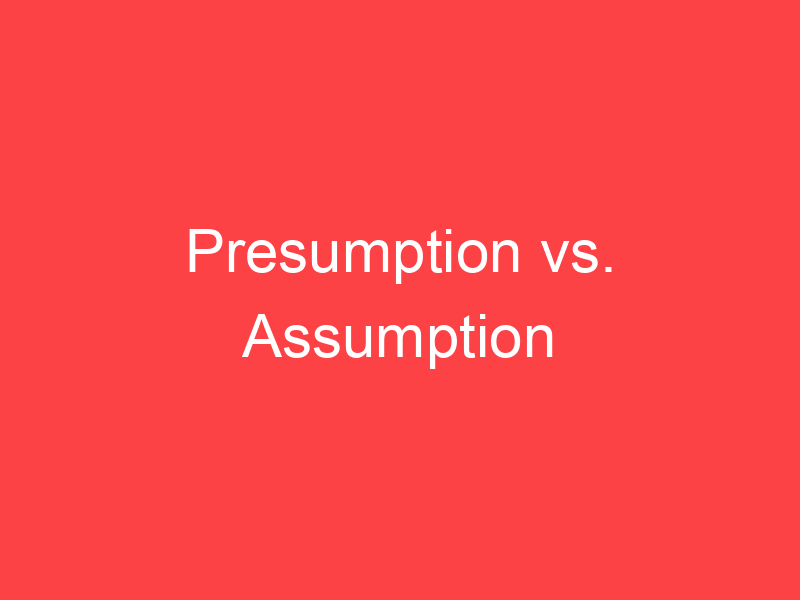-
Presumption
In the law of evidence, a presumption of a particular fact can be made without the aid of proof in some situations. The invocation of a presumption shifts the burden of proof from one party to the opposing party in a court trial.
There are two types of presumption: rebuttable presumption and conclusive presumption. A rebuttable presumption is assumed true until a person proves otherwise (for example the presumption of innocence). In contrast, a conclusive (or irrebuttable) presumption cannot be refuted in any case (such as defense of infancy in some legal systems).
Presumptions are sometimes categorized into two types: presumptions without basic facts, and presumptions with basic facts. In the United States, mandatory presumptions are impermissible in criminal cases, but permissible presumptions are allowed.
An example of presumption without basic facts is presumption of innocence.An example of presumption with basic facts is Declared death in absentia, e.g., the law says if a person has been missing for seven years or more (basic fact), that person is presumed dead.
-
Presumption (noun)
the act of presuming, or something presumed
-
Presumption (noun)
the belief of something based upon reasonable evidence, or upon something known to be true
“The presumption is that an event has taken place.”
-
Presumption (noun)
the condition upon which something is presumed
-
Presumption (noun)
arrogant behaviour; the act of venturing beyond due bounds of reverence or respect
-
Presumption (noun)
An inference that a trier of fact is either permitted or required to draw under certain factual circumstances (as prescribed by legislative or judicial law) unless the party against whom the inference is drawn is able to rebut it with admissible, competent evidence.
-
Assumption (noun)
The act of assuming, or taking to or upon oneself; the act of taking up or adopting.
“His assumption of secretarial duties was timely.”
-
Assumption (noun)
The act of taking for supposing a thing without proof; a supposition; an unwarrantable claim.
“Their assumption of his guilt disqualified them from jury duty.”
-
Assumption (noun)
The thing supposed; a postulate, or proposition assumed; a supposition.
-
Assumption (noun)
The minor or second proposition in a categorical syllogism.
-
Assumption (noun)
The taking of a person up into heaven.
-
Assumption (noun)
A festival in honor of the ascent of the Virgin Mary into heaven, celebrated on 15 August.
-
Assumption (noun)
Assumptio.
-
Presumption (noun)
an idea that is taken to be true on the basis of probability
“underlying presumptions about human nature”
-
Presumption (noun)
the acceptance of something as true although it is not known for certain
“the presumption of innocence”
-
Presumption (noun)
an attitude adopted in law or as a matter of policy towards an action or proposal in the absence of acceptable reasons to the contrary
“the planning policy shows a general presumption in favour of development”
-
Presumption (noun)
behaviour perceived as arrogant, disrespectful, and transgressing the limits of what is permitted or appropriate
“he lifted her off the ground, and she was enraged at his presumption”
-
Assumption (noun)
a thing that is accepted as true or as certain to happen, without proof
“they made certain assumptions about the market”
“we’re working on the assumption that the time of death was after midnight”
-
Assumption (noun)
the action of taking on power or responsibility
“the assumption of an active role in regional settlements”
-
Assumption (noun)
the reception of the Virgin Mary bodily into heaven. This was formally declared a doctrine of the Roman Catholic Church in 1950.
-
Assumption (noun)
the feast in honour of the Assumption, celebrated on 15 August.
-
Assumption (noun)
arrogance or presumption.

